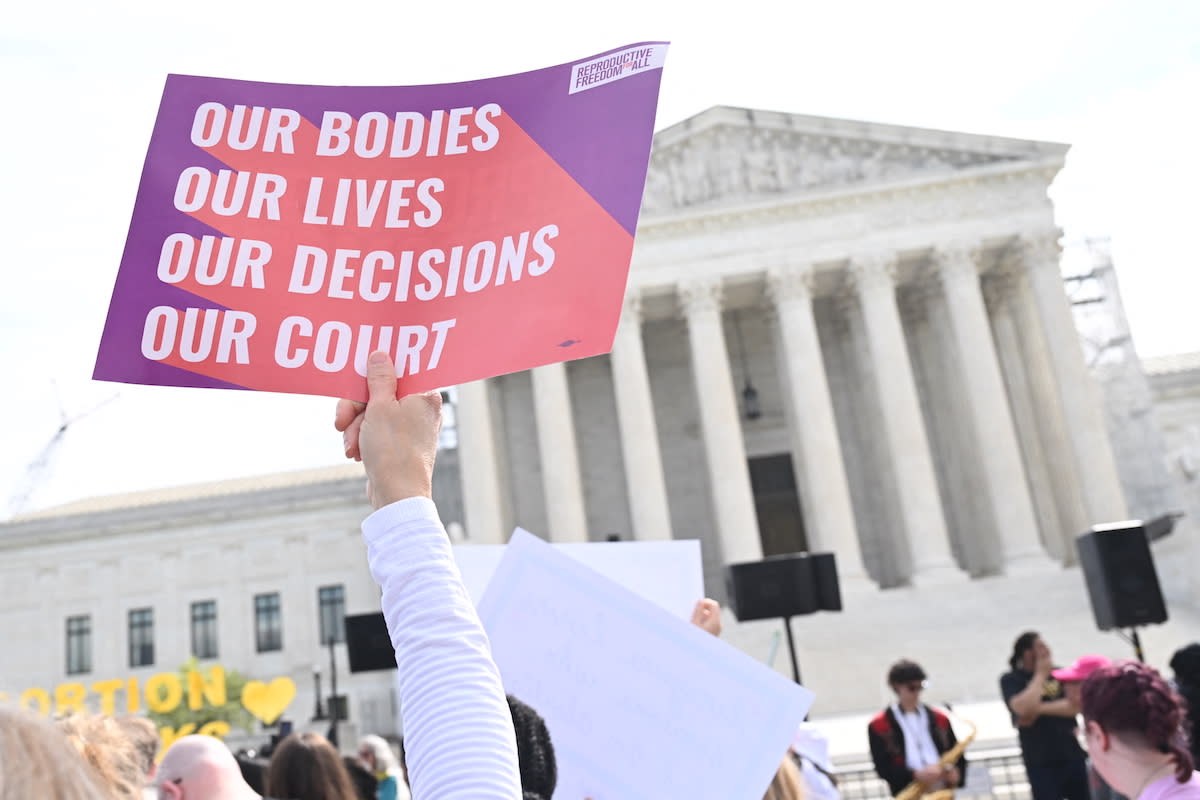"Confused and afraid": Doctors fear Supreme Court may uphold abortion ban with no health exceptions

The lives of thousands of pregnant patients could be at risk if the Supreme Court decides that near-total bans on abortion are consistent with a federal law that requires medical professionals to provide immediate care to anyone suffering a life-threatening condition.
At a press conference Wednesday, doctors warned of dire consequences if the court decides that state-level prohibitions on abortion are consistent with the Emergency Medical Treatment & Labor Act, or EMTALA, which Congress passed into law in 1986. Until now, the law has required any hospital with an emergency room to provide live-saving assistance, no questions asked, including an abortion.
Dr. Jessica Kroll said the worst feeling as a doctor is knowing what a patient needs and "not being able to give it to them." Kroll practices in Idaho, where a state ban on abortion provides no exceptions for the life of a mother. She urged the nation's highest court not to limit doctors' freedom to provide care without judgment.
“If we start piecemeal-ing who we take care of despite what we believe, we cannot take care of people. Our job is to take care of our patients, not to be moral police in the emergency room,” Kroll said at the press conference, organized by the advocacy group Free and Just.
The Supreme Court is now deciding whether states with abortion bans are compliant with that law. Oral arguments in Idaho and Moyle, et al. v. United States were held in April and a ruling could come within days.
If EMTALA is gutted, doctors who choose to terminate a pregnancy during a health emergency could be sent to jail.
The fight over the law was brought to the Supreme Court by Idaho Republicans after the U.S. Department of Justice, citing EMTALA, filed an injunction to prevent the state's abortion ban from going into effect — and to allow patients to terminate a pregnancy when their life is in danger. The Supreme Court accepted the case in January, overturning the injunction and subjecting Idaho doctors to the full extent of the state's abortion ban.
The decision is already impacting healthcare in Idaho, doctors say. Patients needing life-saving abortions now have to be transferred out of state. Since January, the number of patients transferred out of state for emergency pregnancy terminations increased from one in all of 2023 to six in just four months, the Idaho Capital Sun reported.
Doctors are leaving too. Since the state’s abortion ban passed in 2022, 22% of practicing obstetricians have left the state, which has led to the closure of obstetrics programs across the state, according to a report by the Idaho Physician Well-Being Action Coalition.
“Everyone practicing is confused and afraid and it’s hurting patients,” Kroll said.
When she gets a call to the emergency room from another hospital asking if she can take a pregnant patient, Kroll said she can no longer give a simple answer, despite her inclination to provide all patients with care. She says there are now a “multitude of complexities” to consider.
Dr. Esther Choo, an emergency physician and health policy researcher in Oregon, said those complexities will likely lead to delays in care and medical complications for patients. When a patient comes into the emergency room, a doctor is entirely occupied with identifying the right diagnosis and needed care, she said at the press conference.
“So introducing something non-medical into the environment makes that care even more difficult,” Choo said. Though this specific case affects pregnant patients, she said any threat to EMTALA is a threat to the standard of emergency medicine in the United States.
“EMTALA is a universal concept and protection. So although we're talking about pregnancy here, and termination of pregnancy, it actually is this foundation to everything that we do,” Choo said. “You don't want to weaken that foundation and have us practicing that with a different kind of setting where emergency care cannot be depended on to provide stabilization across conditions.”

